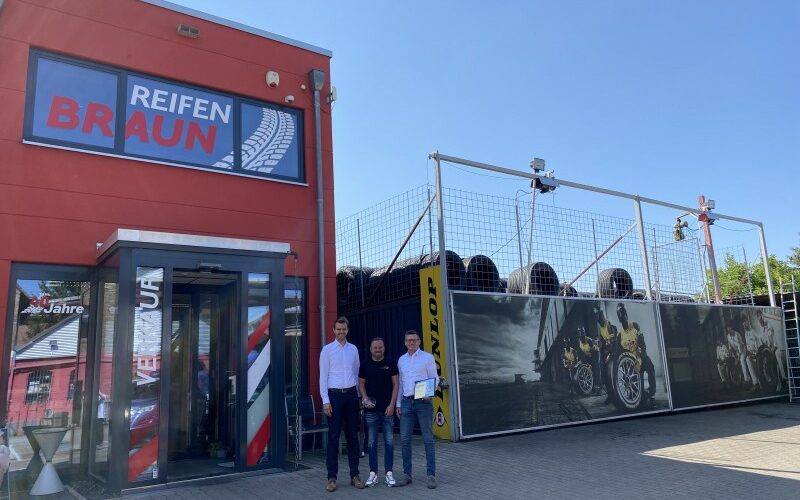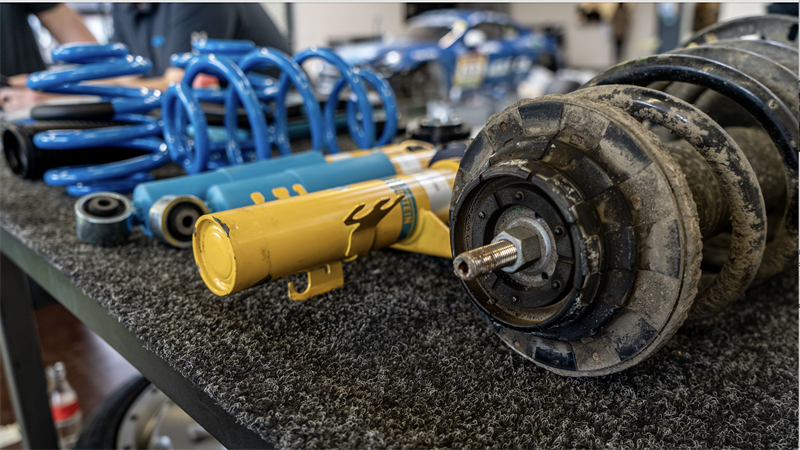Staycation service – how the new normal will impact workshops
With uncertainty over which countries will take holidaymakers from abroad, it’s looking set to be a season of staycations, with loosening lockdown restrictions in some areas making it possible to visit relatives and go on camping and hiking trips. Property Reporter recently reported a surge in demand for purchasing holiday homes to let, with beach resorts especially popular.

With the potential for road trips and in-country holidays back on the horizon, we anticipate a surge in post-lockdown requests for service – as well as potentially an increase in breakdowns as vehicles are taken on a long run for the first time. This month, the Autodata technical team goes through the services you should offer for your customers’ vehicles.
Autodata Head of Product Keith Darby says: “We’ve recently introduced Service Advisor, an at-a-glance interface that allows technicians and front-of-house staff alike to immediately find the service items recommended for the vehicle at this point in their lifespan – and what’s coming up. If a customer is looking to get their car ready for a road trip, make sure you check what service might have been done over the past year and consider upselling them any upcoming service items to make sure the vehicle is road worthy. It’s a win-win situation!”
Tyres – Autodata sees most demand for tyre data in early winter as customers change into winter tyres – but lack of use can also damage tyres if they are left to stand without being rotated, as consistent pressure on one angle leads to flat-spotting; where part of the tyre flattens where it’s in contact with the ground. Where a vehicle has been stationery under vehicle load for a month or more this can lead to semi-permanent flat-spotting; causing vibration, inconsistent handling and even a puncture.
Tyres are becoming as high-tech as the rest of the modern vehicle, with wirelessly updated TPMS sensors inside the tyre powered by a small non-replaceable battery. TPMS sensors aren’t foolproof and can be triggered by driving over a pothole or road calming measure. Often the TPMS indicator light can be reset by driving the car at 50mph for 10 minutes. Failing that, the following methods are likely to be effective:
- Disconnect the battery; turn the ignition key to ‘On’ and actuate the horn. This will discharge remaining power in the vehicle circuit. Reconnect the battery.
- Overinflate the tyre by 3 PSI (0.2 Bar) then deflate them completely. Reinflate the tyres to the correct PSI. This should force the sensors to update.
As a note, spare tyres also increasingly have a TPMS sensor! When diagnosing a persistent TPMS warning light make sure the spare tire in or under the boot has also been reinflated.
Brakes – Seized brake calipers and stuck pads can be a serious issue for vehicles left outside in the damp over an extended period of time. A brake inspection to reveal any faults should be part of any post work-from-home staycation service.
Engine oil – Cars left standing for a long period of time can suffer from oil seepage – leaking oil can damage the seals around the valve stems and crankshaft. This is especially crucial for diesel engines. If the vehicle has missed an oil change make sure it’s in your service suggestions.
Air conditioning – Consider offering your customers an air conditioning regeneration; while Autodata generally sees most demand for air con data in summer months, cars parked for a long period of time can accumulate moisture in the air conditioning. As well as creating an unpleasant musty smell, this can damage the system by corroding the valves or rubber seals. Autodata’s Air Conditioning module contains essential system information, layout and wiring diagrams for technicians. Download our free PDF on tackling the most common air con woes here.
Windscreen wipers – In many countries at least the front windscreen wipers must be in good condition to pass a vehicle safety check – able to clear the windscreen to give the driver a clear view of the road ahead. Cold conditions will degrade the rubber portion of a wiper blade, which should be replaced at least once a year, making new wipers a simple upsell for a post-lockdown service.
Suspension and wheel alignment – With non-essential road repairs suspended in some countries over lockdown and coming out of winter in the Northern Hemisphere, it’s important to make sure suspension is in good shape. As water freezes in cracks in the road it expands, creating potholes which can damage suspension and move wheel alignments. Autodata’s Wheel Alignment module offers model-specific setting data and tightening torques – for more information check out our technical article on Wheel Alignment here.
Battery – If the customer’s planning a long road trip after the vehicle has been unused for some months, consider offering a new battery. Off-the-shelf jump starters can be convenient in getting an infrequently used vehicle moving, but can harm long-term battery life. Cold can also damage a battery’s lifespan – with Autodata seeing around twice the usage of its Battery module in winter months. Vehicles are becoming increasingly complex and, with so many electrified systems, battery disconnection and reconnection is no different. Autodata’s Battery module offers information on battery disconnection and replacement.
Chris Wright, Managing Director of Autodata says: “Autodata has been working hard during lockdown to ensure our product is as up-to-date as possible. Technical data doesn’t stay static and our online workshop application solution is regularly updated with the latest manufacturer repair information to reflect real-world data on how fast parts wear and issues which may arise. We offer a Service & Maintenance subscription with essential technical information, service schedules and repair times for workshops, as well as a comprehensive Diagnostic & Repair version with diagnostic trouble codes, wiring diagrams, faults and fixes and more.”
To find out more about Autodata or to try it today, visit www.autodata-group.com









